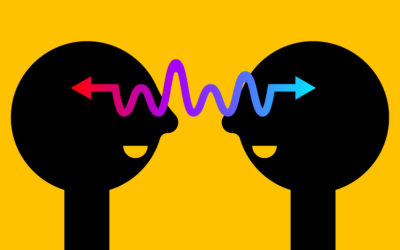Quick Hits
Daily brief research updates from the cognitive sciences

I’m sure we’re all aware of the various negative aspects of having contracted COVID-19 such as long COVID but also the brain fog that seems to have been a feature that many people have reported.
I have written on the long-term damage to the brain, or not, that has been reported, but this study simple looked at on the job performance of a group of 94 people. About half of which had not been diagnosed with COVID-19, and the other half who had at least a month previously.
They were then assessed on so-called cognitive failures at work. Cognitive failures are classed as problems with memory, attention, and action. They were also asked of their intention to stay or leave the company they were working for.
The results
The results showed that those who had had COVID-19 experienced more cognitive failures. They also self-rated their job performance as lower and also had increased intention to leave their job. Considering what we know about the subsequent brain fog this might not be surprising but shows that this does seem to directly impact job performance but interestingly also the intention to leave one’s job.
What was maybe more interesting and worrying is that these cognitive failures did not seem to diminish over time i.e. those that had COVID-19 earlier and had therefore had more recovery time, did not show lower cognitive failures. This is in line with previous studies showing long-term brain fog – however some reports have shown that this does decrease over time. But it takes time.
So, all in, it shows that irrespective of actual damage to the brain, that cognitive impairment is widely reported and seems to translate into lower work performance but also higher intention to leave. It would therefore be wise for companies to take this into account – and another good reason to avoid contracting COVID in the first place!
Although at this stage of the pandemic, it might be a bit late for that now●

Andy Habermacher
Andy is author of leading brains Review, Neuroleadership, and multiple other books. He has been intensively involved in writing and research into neuroleadership and is considered one of Europe’s leading experts. He is also a well-known public speaker speaking on the brain and human behaviour.
Andy is also a masters athlete (middle distance running) and competes regularly at international competitions (and holds a few national records in his age category).
Reference
James W. Beck, Arden Flow
The effects of contracting Covid-19 on cognitive failures at work: implications for task performance and turnover intentions.
Scientific Reports, 2022; 12 (1)
DOI: 10.1038/s41598-022-13051-1
More Quick Hits
The Surprising Effectiveness of Coaching in Diminishing Burnout Symptoms
Different areas of the brain are associated with empathy – this new research shows how brain regions synchronise to induce empathic responses.
When Love Overrides Other Needs
Different areas of the brain are associated with empathy – this new research shows how brain regions synchronise to induce empathic responses.
The Negative Social Impact of Dealing with AI in the Workplace
Different areas of the brain are associated with empathy – this new research shows how brain regions synchronise to induce empathic responses.
How the Gut Influences Brain Development in Babies
Different areas of the brain are associated with empathy – this new research shows how brain regions synchronise to induce empathic responses.
Your Brain’s Own Cannabinoid Molecules Calm You Down
Different areas of the brain are associated with empathy – this new research shows how brain regions synchronise to induce empathic responses.
Role of Dopamine in Speed and Accuracy of Decisions
Different areas of the brain are associated with empathy – this new research shows how brain regions synchronise to induce empathic responses.






